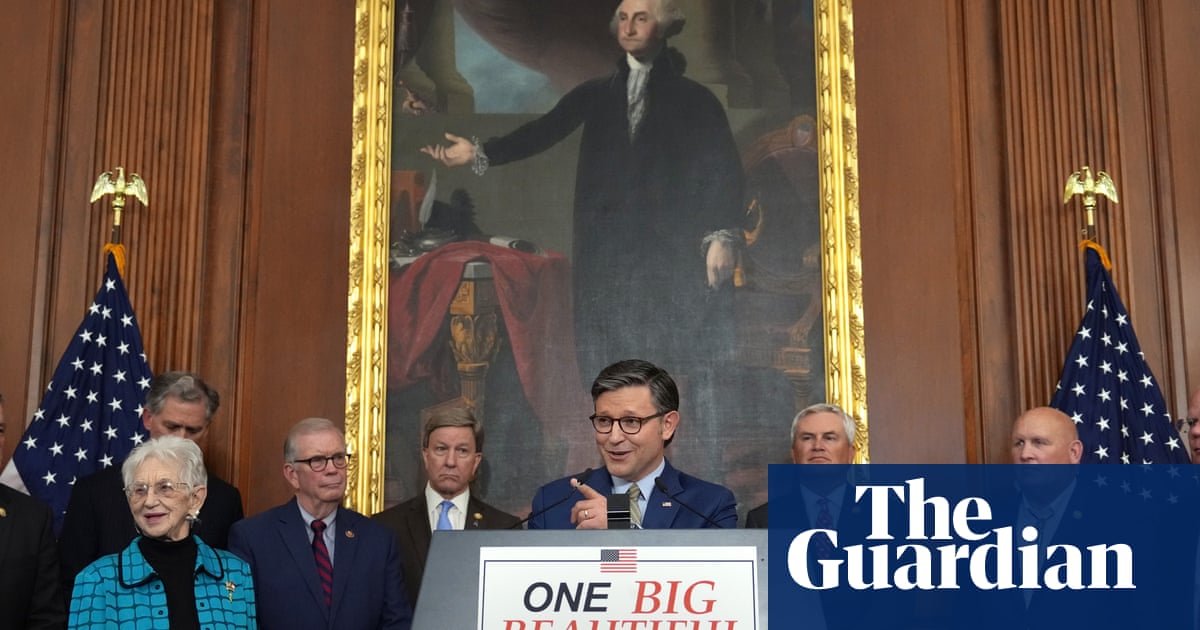Donald Trump’s signature tax bill would blow a $2.4tn hole to America’s national debt over the next decade, according to a Congressional Budget Office analysis.
The non-partisan budget office said on Wednesday that Trump’s “one big, beautiful bill” would decrease federal revenues by $3.67tn while cutting spending by $1.25tn through 2034, as the national debt currently stands at $36tn.
The analysis comes as the legislation faces criticism from within Republican ranks, threatening Trump’s fragile Senate majority. The recent disapproval has been led by Elon Musk, who denounced the measure as a “disgusting abomination” on his X platform on Tuesday.
“This massive, outrageous, pork-filled Congressional spending bill is a disgusting abomination,” Musk wrote. “Shame on those who voted for it: you know you did wrong.”
The House speaker, Mike Johnson, acknowledged tensions with Musk, telling reporters he had spoken with Trump about the criticism. “He’s not delighted that Elon did a 180 on that,” Johnson said.
The legislation extends Trump’s 2017 tax cuts while making deep spending reductions, primarily through cuts to Medicaid and food assistance programs, and passed the House by a single vote last month with no Democratic support. On Tuesday, the Georgia Republican Marjorie Taylor-Greeneadmittedshe had missed a section of the bill text that was meant to regulate AI over the next 10 years, something she says would have made her vote against it. The week prior, the Nebraska representative Mike Flood said he glossed over another part of the bill about federal judges enforcing contempt orders.
The CBO analysis found the bill would leave 10.9 million more Americans without health insurance by 2034, including 1.4 million people “without verified citizenship, nationality, or satisfactory immigration status” who would lose coverage under state-funded programs.
The White House press secretary, Karoline Leavitt, dismissed the projections, claiming the budget office has become “partisan and political”. She alleged CBO staff members have not contributed to Republican candidates since 2000 while many have donated to Democrats.
Johnson had a similar take on the CBO, and defended the legislation, claiming it represents unprecedented spending cuts. “No government in the history of mankind has ever cut $1.6tn in a piece of legislation,” he told reporters. Earlier in the week, he said 84% of its budget analysts were “partisan Democrats” who donate to “Bernie Sanders, Elizabeth Warren”.
The Senate is expected to consider modifying the legislation in coming weeks, with Republican leaders hoping to pass a final version by early July.
